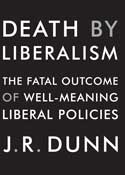 by James V. Schall, S.J. –
by James V. Schall, S.J. –
Greed, some say, is the main reason the poor are poor. It isn’t. We rarely take a close look at envy. Because someone is rich, it does not follow that he is therefore greedy. A poor man is free to be both greedy and envious. Envy is as much a generator of extra work as want, perhaps more so.
Mandeville’s famous notion, that our vices not our virtues cause prosperity, has a point. Usable wealth must first be produced and made available. The primary causes of wealth production are brains, effort, and virtue. The world was given to us in a raw state to see what we would do with it, yes, for one another.
At first sight, the oft-repeated lament that the world’s goods need to be “redistributed” for the benefit of the poor seems logical. Usually behind this apparently innocent approach is the idea of the limitation of the world’s “goods.” If the world’s resources are “limited,” then we need to establish a system of control of human behavior, of our “desires.” [Read more…]

 by Fr Geoffrey Korz –
by Fr Geoffrey Korz –
 by Fr. Stephen Freeman –
by Fr. Stephen Freeman – by Fr. John Moses –
by Fr. John Moses –

 by J.R. Dunn
by J.R. Dunn